Did you know that 21 million people qualify for genetic testing, yet only 650,000, or less than three percent are actually tested?* While many people have a history of cancer in their family, only 5-10% of cancer is hereditary.
Cancer falls into one of three categories. Familial Cancer is a pattern of the same type of cancer within a family that may be due to genetic and/or other shared factors, such as environment and lifestyle. Hereditary Cancer is a pattern of the same or related types of cancers within a family due to inherited mutations (genetic changes) which can be passed from parent to child. Sporadic Cancer occurs by chance in one or two family members that are not due to an inherited gene mutation. Approximately 80% of all cancers are sporadic.
 The CARE™ (Comprehensive Assessment, Risk and Education) genetic breast cancer testing results may help your healthcare provider fine-tune your cancer screening plan, including the type, timing (age) of your initial screening, and its frequency. Based on your results, your healthcare provider may review cancer prevention options with you and also identify and discuss other personalized medical management options that may be appropriate.
The CARE™ (Comprehensive Assessment, Risk and Education) genetic breast cancer testing results may help your healthcare provider fine-tune your cancer screening plan, including the type, timing (age) of your initial screening, and its frequency. Based on your results, your healthcare provider may review cancer prevention options with you and also identify and discuss other personalized medical management options that may be appropriate.
When would I be recommended for Genetic Breast Cancer Testing?

Both men and women can benefit from learning if they have breast cancer risk. Results of genetic testing can help determine if someone has a higher risk of developing different types of cancer, including breast, ovarian, colorectal, uterine, pancreatic, prostate, stomach and melanoma, among others.
According to national guidelines, women with an increased risk for breast cancer should consider earlier and/or more frequent breast cancer screenings via mammograms, and in some situations, with breast MRI/contrast-enhanced mammography.
Genetic breast cancer testing may be considered appropriate if the answer is “yes” to any of the following:
- Have you/your family members been diagnosed with cancer at a young age (under 50 years old)?
- Do you have three or more people on the same side of the family had cancer?
- Have you/your family members been diagnosed with more than one cancer?
- Has anyone in your family been found to have a cancer gene mutation?
- Have you/your family members been diagnosed with cancers that are usually rare such as ovarian cancer or male breast cancer?
- Are you of Ashkenazi Jewish ancestry?
What Will I Experience?
Genetic breast cancer testing is a simple, efficient process. Those patients who are eligible will be contacted five days prior to their scheduled screening mammogram and given the option of a brief, no-charge high risk assessment via a mobile device or email.
If the assessment results in a woman meeting the National Comprehensive Cancer Network genetic testing criteria, she will be advised of the option to proceed with genetic testing at the time of her mammogram visit.
If we proceed, your saliva sample will be collected and sent to the testing company, Ambry Genetics. Results will be provided to the woman and her healthcare provider usually within two to three weeks. A complimentary phone consultation with a genetics counselor is also offered to her.
Four out of five patients will pay nothing for genetic testing. For people who may incur a fee that is their responsibility to pay, the average cost is less than $100. If your responsibility exceeds $100, you will receive a call to approve the expense.
*cdc.gov/chronicdisease/about/costs/index.htm


